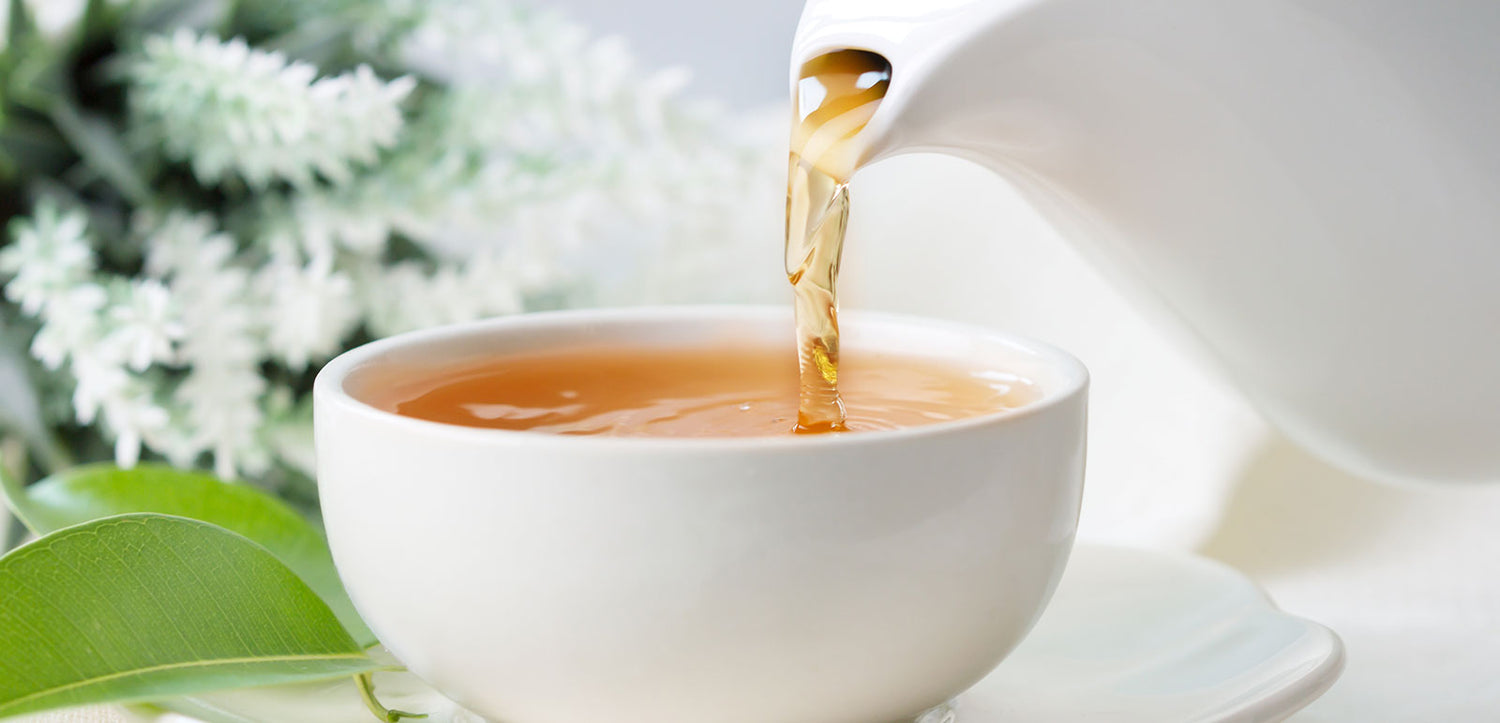Does White Tea Have Caffeine? Things You Need to Know

White tea is one of the most delicate and least processed types of tea, cherished for its light, subtle flavor. If you’ve ever wondered about its caffeine content, its effects on your teeth, or its overall health benefits, you’re not alone. Get answers to these questions and achieve a deeper understanding of this elegant beverage.
What is White Tea?
This delicate brew originates from the young leaves and buds of the Camellia sinensis plant. This is the same tea plant used to produce green, black, and oolong teas.
What sets this tea apart is its minimal processing. Unlike green tea which is steamed, the leaves are hand-picked, then withered and dried naturally.
This minimal processing helps retain more antioxidants. It creates a flavor that is lighter and more delicate compared to its more heavily processed counterparts.
Some types of white tea include: Silver Needle, White Peony, and Shou Mei. Each varies in flavor and intensity, but all share a characteristic subtlety in taste.

Does White Tea Have Caffeine?
Yes, white tea leaves contain caffeine, though in much lower than black tea or coffee. A cup of white tea can range from 15 to 30 milligrams of caffeine per 8-ounce serving. The amount of caffeine depends on the type of tea and how it is brewed. For comparison, an 8-ounce cup of coffee can contain anywhere from 80 to 100 milligrams of caffeine.
This tea has less caffeine than a green or black tea. With less caffeine, it is less likely to cause jitters or an energy crash like coffee or sodas.
Does White Tea Stain Teeth?
Unlike coffee or black tea, white tea is less likely to stain your teeth. This is because this tea contains fewer tannins than darker teas – the compounds responsible for staining teeth.
It’s still possible for any tea to cause some staining over time. If you drink a lot of tea, rinsing your mouth with water after drinking a cup can help minimize the risk of staining.
What Does White Tea Taste Like?
White tea has a mild and subtle flavor profile, often described as sweet and slightly grassy, with a floral aroma. The taste is lighter and more refined than green or black tea. Some people also notice hints of honey or fruit, depending on the blend of the tea.
The gentle flavor makes it a great choice for those who enjoy delicate, nuanced flavors. If you prefer your tea on the sweeter side, you can try adding a bit of honey or lemon. But many tea lovers prefer to enjoy its natural sweetness.

Is White Tea Healthy for You?
Rich in antioxidants, this variety of tea offers numerous health advantages. Polyphenols, a type of antioxidant, assist in safeguarding the body against oxidative stress and free radical harm, which can lead to aging and illness.
Some of the potential health benefits of white tea include:
- Boosting Skin Health: White tea is rich in compounds that have anti-aging effects. The antioxidants in may help reduce the appearance of wrinkles and protect skin from UV damage.
- Supporting Heart Health: Some studies suggest that drinking white tea can help improve blood circulation, lower cholesterol, and reduce the risk of heart disease.
- Enhancing Weight Loss: The caffeine and catechins in white tea may help boost metabolism, aiding in fat burning and weight loss.
- Improving Immune Function: White tea’s antioxidants and polyphenols can support a healthy immune system to help fight off infections and illnesses.
Can White Tea Lower Blood Sugar?
Some studies have indicated that white tea may help regulate blood sugar levels. Results showed that polyphenols can improve insulin sensitivity and help lower blood sugar levels.
This may be potentially beneficial for those with type 2 diabetes or those looking to manage their blood sugar. However, it should not replace medications or other lifestyle changes prescribed by your healthcare professional.

How Long to Steep White Tea
White tea is delicate, so it should be brewed at a lower water temperature compared to other teas. Here’s how to make the perfect cup:
1. Temperature: Heat the water to around 160-170°F (71-77°C). If you allow the water to boil, the delicate leaves can become scorched and bitter.
2. Steeping Time: Steep for 3 to 5 minutes. The longer you steep it, the stronger the flavor, but over-steeping can make the tea taste a bit too bitter. If you’re experimenting with different varieties, you can adjust the time to your taste preferences.
What is a White Tea Shot?
A white tea shot is a trendy cocktail or wellness shot that incorporates white tea as a primary ingredient. Brewed white tea is blended with ingredients like vodka, peach schnapps, and a splash of lemon juice. The result is a refreshing, lightly sweetened drink with a unique flavor.
On the health side, white tea shots can also refer to concentrated extracts or supplements that aim to deliver the benefits of white tea in a more concentrated form. These are often marketed as providing an energy boost or offering antioxidant support.
Conclusion
White tea is not only a soothing and aromatic beverage, but it also offers a range of health benefits, from its rich antioxidant content to its potential role in supporting heart health and blood sugar regulation. While it contains caffeine, it’s in much smaller amounts than coffee, making it a gentler option for those looking to cut back on their caffeine intake. So, whether you’re sipping it for its mild flavor or its health perks, white tea is a drink worth exploring!





